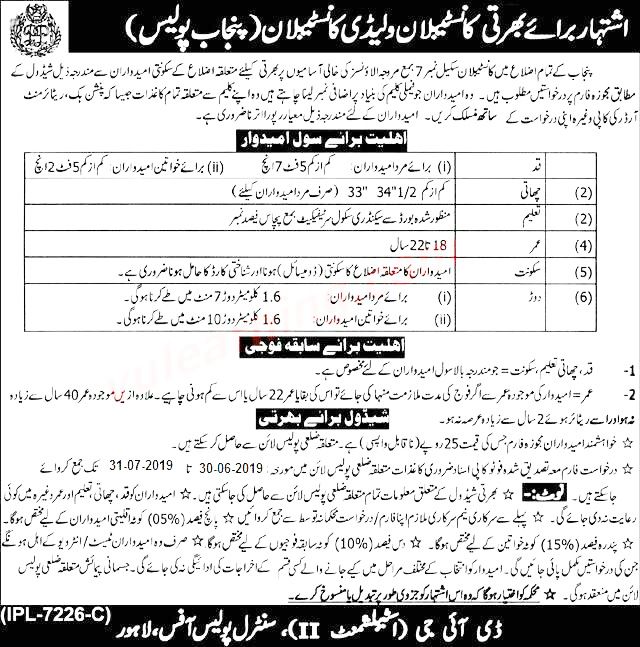Law enforcement agencies in Pakistan offer a diverse range of career opportunities for individuals aspiring to serve their communities and uphold justice. These positions cater to various educational backgrounds and skill sets, ensuring that dedicated individuals can find a role that aligns with their capabilities and interests.
1. Types of Police Positions in Pakistan

The primary law enforcement agencies in Pakistan include:
- Punjab Police: Responsible for maintaining law and order in the Punjab province.
- Sindh Police: Tasked with policing the Sindh province.
- Khyber Pakhtunkhwa (KPK) Police: Oversees law enforcement in the KPK region.
- Balochistan Police: Ensures security in the Balochistan province.
- Islamabad Police: Manages law enforcement in the federal capital.
- National Highways & Motorway Police (NHMP): Focuses on traffic management and law enforcement on national highways and motorways.
- Pakistan Railways Police: Ensures the safety and security of the railway network.
2. Common Police Positions and Their Requirements
While specific requirements may vary by agency and position, the following are common roles within Pakistani police departments:
- Constable: Entry-level position responsible for patrolling, maintaining order, and assisting in investigations.
- Eligibility Criteria:
- Age: Typically 18 to 25 years.
- Education: Minimum of Matriculation (10th grade).
- Physical Standards:
- Male: Minimum height of 5 feet 7 inches; chest measurement of 34 inches with a 1.5-inch expansion.
- Female: Minimum height of 5 feet 2 inches.
- Eligibility Criteria:
- Assistant Sub-Inspector (ASI): Mid-level supervisory role overseeing constables and assisting in investigations.
- Eligibility Criteria:
- Age: Generally 18 to 30 years.
- Education: Intermediate (12th grade) or higher.
- Physical Standards:
- Male: Minimum height of 5 feet 7 inches; chest measurement of 34 inches with a 1.5-inch expansion.
- Female: Minimum height of 5 feet 2 inches.
- Eligibility Criteria:
- Sub-Inspector (SI): Responsible for leading investigations and managing police stations.
- Eligibility Criteria:
- Age: Typically 20 to 30 years.
- Education: Graduation (Bachelor’s degree).
- Physical Standards:
- Male: Minimum height of 5 feet 7 inches; chest measurement of 34 inches with a 1.5-inch expansion.
- Female: Minimum height of 5 feet 2 inches.
- Eligibility Criteria:
- Traffic Warden: Specializes in traffic management and enforcement.
- Eligibility Criteria:
- Age: Generally 18 to 25 years.
- Education: Intermediate (12th grade).
- Physical Standards:
- Male: Minimum height of 5 feet 7 inches; chest measurement of 34 inches with a 1.5-inch expansion.
- Female: Minimum height of 5 feet 2 inches.
- Eligibility Criteria:
3. Recruitment Process

The recruitment process generally involves:
- Application Submission: Candidates must submit applications through the official channels of the respective police department.
- Written Examination: Assessing general knowledge, reasoning ability, and subject-specific knowledge.
- Physical Measurement Test (PMT): Evaluating physical standards such as height, chest measurement, and weight.
- Physical Efficiency Test (PET): Assessing physical fitness through activities like running, push-ups, and sit-ups.
- Interview: Conducted by a selection committee to assess the candidate’s suitability for the role.
- Medical Examination: Ensuring the candidate meets the health standards required for the position.
4. Training and Development
Selected candidates undergo rigorous training programs that include:
- Basic Police Training: Covering laws, regulations, and policing techniques.
- Physical Training: Enhancing physical fitness and endurance.
- Specialized Training: Depending on the role, this may include traffic management, criminal investigation, or counter-terrorism.
5. Career Advancement
Police departments offer various opportunities for career progression, including:
- Promotions: Advancement to higher ranks based on performance, seniority, and departmental requirements.
- Specialized Roles: Assignments in areas such as cybercrime, counter-terrorism, or forensic analysis.
- Training Programs: Participation in national and international training to enhance skills and knowledge.
6. Benefits and Compensation
Police personnel receive various benefits, including:
- Salary: Competitive pay scales as per government regulations.
